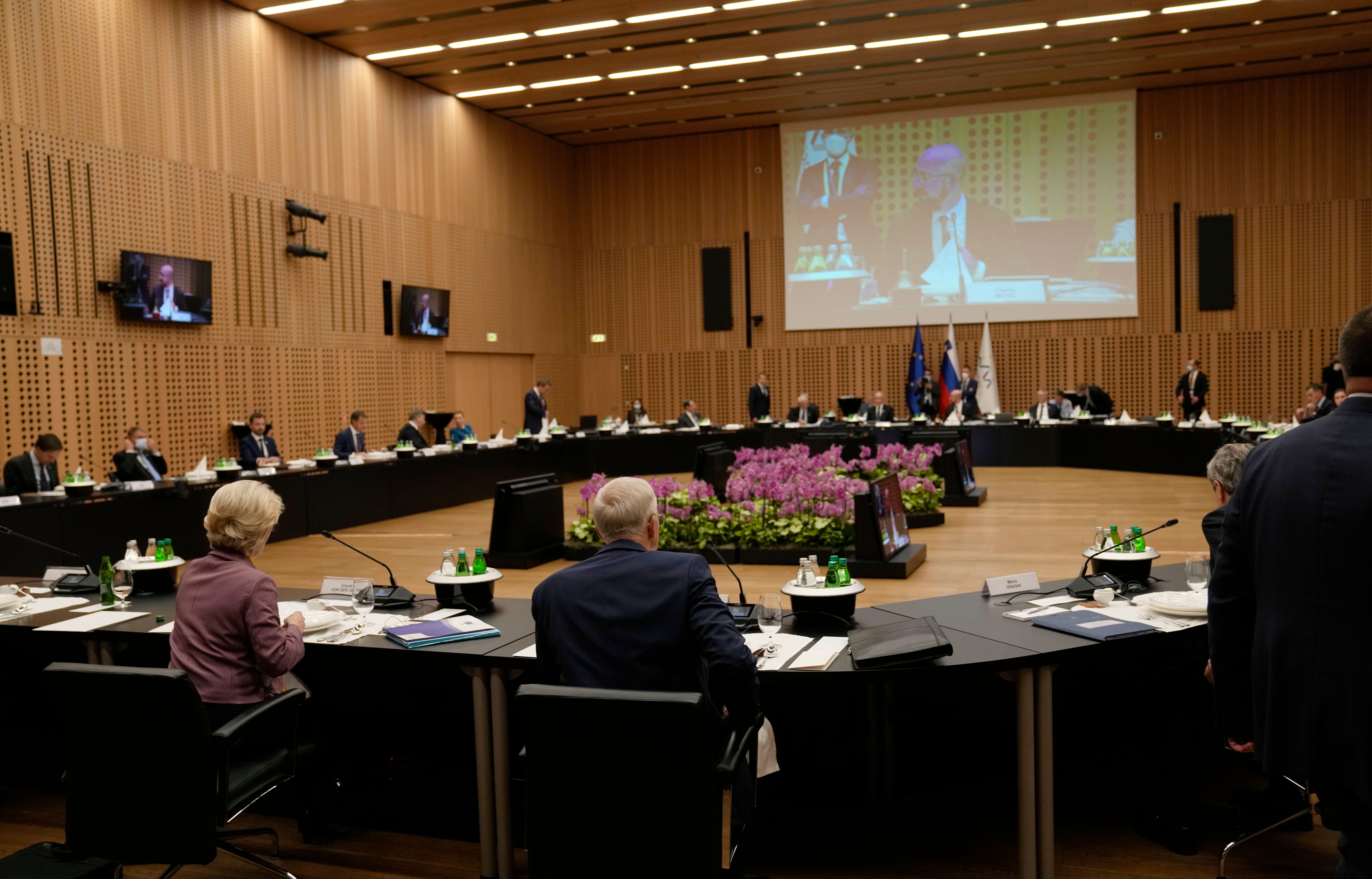EU leaders to reassure Balkans 6 as membership hopes stall
European Union leaders are gathering to reassure six countries in the Balkans that they could join the trading bloc one day

Your support helps us to tell the story
From reproductive rights to climate change to Big Tech, The Independent is on the ground when the story is developing. Whether it's investigating the financials of Elon Musk's pro-Trump PAC or producing our latest documentary, 'The A Word', which shines a light on the American women fighting for reproductive rights, we know how important it is to parse out the facts from the messaging.
At such a critical moment in US history, we need reporters on the ground. Your donation allows us to keep sending journalists to speak to both sides of the story.
The Independent is trusted by Americans across the entire political spectrum. And unlike many other quality news outlets, we choose not to lock Americans out of our reporting and analysis with paywalls. We believe quality journalism should be available to everyone, paid for by those who can afford it.
Your support makes all the difference.European Union leaders are gathering Wednesday to reassure six countries in the Balkans region that they could join the trading bloc one day if they meet its standards, but the presidents and prime ministers are unlikely to give any signal about when the nations might advance in their quests.
Despite years of talk about the “European perspective” of Albania Bosnia Kosovo, Montenegro, North Macedonia and Serbia, the EU has seen its progress on admitting them stall. Albania and North Macedonia have met the criteria to start talks, but all 27 countries must agree unanimously for the process to move forward.
The leaders are meeting at Brdo Castle, a Renaissance-style fortified palace in Slovenia that was used by the late Yugoslavia President Josip Broz Tito as a summer residence. Slovenia, which currently holds the EU’s rotating presidency, backs its Balkans neighbors’ EU membership hopes.
The EU leaders will reaffirm a “commitment to the enlargement process” in general, but progress will be “based upon credible reforms by partners, fair and rigorous conditionality and the principle of own merits,” according to a draft of the statement they are set to issue later, seen by The Associated Press.
The draft also underlines “the importance that the EU can maintain and deepen its own development, ensuring its capacity to integrate new members.” France insisted two years ago that the functioning and decision-making of the EU should be revamped before new members are admitted.
The prospect of EU membership has served as a powerful driver of political and economic reform in the Balkans and has sometimes helped to keep a lid on tensions in a region that was torn apart by war in the 1990s.
The six countries are at different stages on the EU membership path. Montenegro and Serbia are the most advanced, having opened formal accession talks years ago. Albania and North Macedonia are awaiting the official opening of negotiations, and Kosovo and Bosnia are potential candidates.
The latest hold-up focuses on Albania and North Macedonia. Those countries have fulfilled the criteria for beginning entry talks, but EU member Bulgaria opposes North Macedonia’s inclusion because of a dispute over language and national identity.
Since the Albanian and North Macedonian bids are linked and launching accession talks requires unanimous approval, Bulgaria’s veto has also prevented Albania from moving forward.